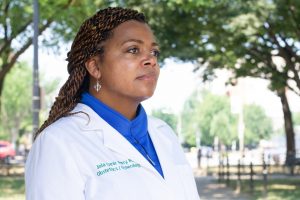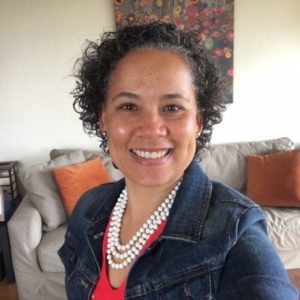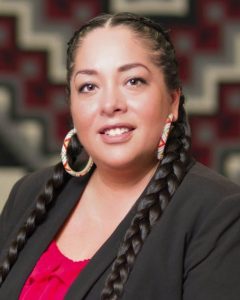View the webinar recording, view U.S. Senator Patty Murray’s remarks, view Representative Gwen Moore’s remarks.
Complete this survey to endorse the Protect Moms from Domestic Violence Act and to provide additional supporting materials like, a letter of support (PDF upload) and/or a quote/statement in support of the Act.
Printed remarks will be uploaded shortly.
Event date: Thursday, July 22, 2021
Event time: 9am-10am Pacific/ 12pm-1pm Eastern
This event is hosted by the National Health Collaborative on Violence and Abuse, American College of Obstetricians, March of Dimes, and Futures Without Violence in conjunction with U.S. Senator Patty Murray, U.S. Senator Jeanne Shaheen, and Representative Gwen Moore.
As Congress addresses the threats to Black maternal health, it is important to also discuss the impact of intimate partner violence (IPV) on maternal mortality. The briefing will highlight the leading causes of pregnancy-associated deaths (homicide, suicide, and drug overdose) and the relationship with intimate partner violence and structural barriers to health equity. Join us to hear from leading health and advocacy experts to lift up these issues and share timely policy solutions.
Speakers:
Dr. Joia Crear-Perry, National Birth Equity Collaborative
Dr. Zsakeba Henderson, March of Dimes
Gabriela Zapata-Alma, LCSW, CADC, National Center on Domestic Violence, Trauma, and Mental Health
Abigail Echo-Hawk, MA, Seattle Indian Health Board and Urban Indian Health Institute
Virginia Duplessis, MSW, Futures Without Violence
Tonya McFadden, MS, MSA, American College of Obstetricians and Gynecologists
Dr. Joia Crear-Perry is the Founder and President of the National Birth Equity Collaborative. She is a global maternal health advocate, recently addressing the United Nations Office of the High Commissioner for Human Rights. Previously, she served as the Executive Director of the Birthing Project, Director of Women’s and Children’s Services at Jefferson Community Healthcare Center and as the Director of Clinical Services for the City of New Orleans Health Department where she worked to improve access and availability of affordable health care to New Orleans’ citizens post the Hurricane Katrina disaster of 2005. Dr. Crear-Perry completed her medical degree at Louisiana State University and her residency in Obstetrics and Gynecology at Tulane University’s School of Medicine. She was also recognized as a Fellow of the American College of Obstetrics and Gynecology. Her love is her family; health equity is her passion; maternal and child health are her callings.
Dr. Zsakeba Henderson currently leads the Office of Maternal and Child Health Impact at March of Dimes, providing strategic direction and clinical expertise across the organization to help end the maternal and infant health crisis. She is a board-certified obstetrician-gynecologist, and previously led the program in support of state-based perinatal quality collaboratives at the Centers for Disease Control and Prevention Division of Reproductive Health, including leading the establishment of the National Network of Perinatal Quality Collaboratives. Dr. Henderson received her BS degree in Biochemistry from Oakwood University in Huntsville, Alabama, and her medical degree from Harvard Medical School in Boston, Massachusetts. She also completed her internship and residency at Harvard, at the Brigham and Women’s Hospital/Massachusetts General Hospital Integrated Residency Program in Obstetrics and Gynecology. She subsequently entered the Epidemic Intelligence Service at the Centers for Disease Control and Prevention, in the Division of STD Prevention. Dr. Henderson is a nationally-recognized leader in the growth and spread of perinatal quality improvement efforts across the country, working toward the goal of making the United States of America a safer place to give birth and be born.
Gabriela Zapata-Alma, LCSW, CADC, is the Director of Policy and Practice on Domestic Violence and Substance Use at the National Center on Domestic Violence, Trauma, and Mental Health, as well as a Lecturer and Director of the Alcohol and Other Drug Counselor Training Program at the University of Chicago. Gabriela brings over 15 years of experience supporting people impacted by structural and interpersonal violence through evidence-based clinical, housing, resource advocacy, and HIV-specific programs. Currently, Gabriela authors best practices, leads national capacity-building efforts, and provides trauma-informed policy consultation to advance health equity and social justice.
Virginia Duplessis, MSW, (she/her) is the Associate Director of Health at Futures Without Violence, where she oversees a range of initiatives designed to improve the public health response to violence against women and increase the capacity of domestic violence services providers to address the health needs of their clients. She has also provided leadership on several multi-sector collaborations to increase health equity, prevent childhood trauma, and develop health policies to prevent violence. She serves as the Director of the National Health Resource Center on Domestic Violence. Ms. Duplessis brings over 20 years of experience in domestic violence, sexual assault, and public health. Ms. Duplessis received her BA in Communications from Stanford University and her MSW from UC Berkeley.
Abigail Echo-Hawk, MA (Pawnee) is the executive Vice President of the Seattle Indian Health Board and the director of the Urban Indian Health Institute, a tribal epidemiology center. She works to support the health and well-being of urban Indian communities and tribal nations across the United States. Abigail has been recognized as a national leader in decolonizing data for Indigenous people, by Indigenous people.
.




